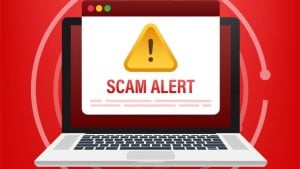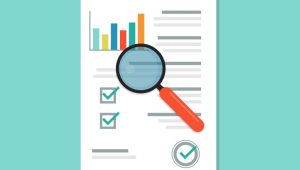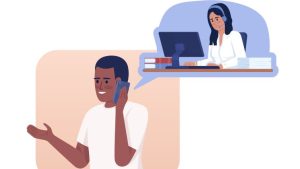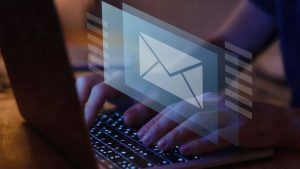How To Write A Follow-Up Message in 2022
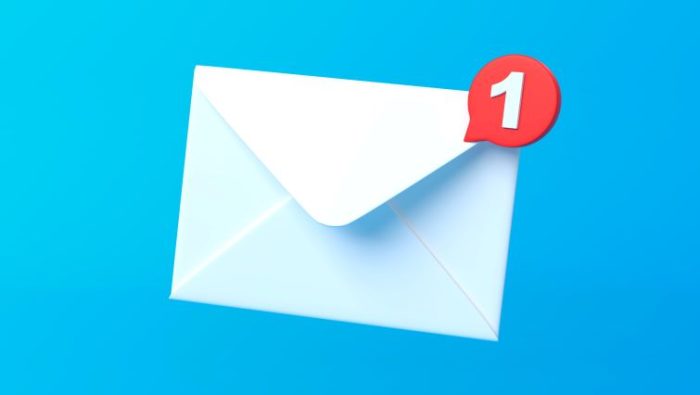 Publié le 10 March 2022
Publié le 10 March 2022
Knowing how to write a follow-up message in 2022 will help you make a great impression after a job interview and improve your chances of being hired for your ideal job.
After you walk out of the big job interview, take a moment to congratulate yourself for making it this far in the hiring process. While this might seem like the time to sit back and wait to hear from a hiring manager, there is one more thing you can do to improve your chances of landing your ideal job role. Knowing how to write a follow-up message in 2022 to a HR manager or recruiter will help you stand out from the crowd, make a strong professional impression, and boost your chances of getting hired.
Do You Need To Write A Follow-Up Message?
The short answer is that yes, you should always write a follow-up message. A survey of hiring managers found that 68% stated whether or not they received a follow-up message after a job interview had an impact on their view of a potential employee. If there is a chance that not doing something as simple as sending a short follow-up message could negatively affect your chances with more than two-thirds of hiring managers, there is no reason to take such a risk.
What To Include
Cover The Basics
Always start out your follow-up message by thanking the interviewer for their time. This is an easy way to acknowledge the effort that HR managers put into recruiting people, reading resumes and selecting candidates for job interviews. It is a good idea to express your gratitude for being selected for an interview, and your appreciation for the opportunity.
This is also the time to state the exact name of the job role and the organization for which you were interviewed. Doing so may seem a little redundant, but you have to remember that it is not uncommon for HR managers and recruiters to conduct multiple job interviews in a single day. For start-ups and companies that are expanding, there will likely be job interviews for several different roles conducted in the same day or week, so it is never a bad idea to clearly state the exact role that you are seeking.
Be Specific
The goal of a job interview is not only to determine if the skills and abilities possessed by a candidate meet the requirements of a job role, but also to see if they have the right personality traits and values to be a strong addition to the workplace. Hopefully, job candidates use the interview as an opportunity to establish a professional connection with HR managers and recruiters, and the follow-up message is the time to discuss specific points that were discussed during the interview.
Include one or specific points that were brought up during the job interview, and briefly elaborate on them in the follow-up message. For example, if you discussed an article about the latest HR trends that you feel will shape the needs of the revamped workplace, include a link and a sentence or two explaining why you felt it was important. This can be an effective way to make a connection with an HR manager and stand out after the job interview.
Keep It Simple
You will likely be one of many people interviewing for the same job, one of ten on average, which places a significant strain on the time of a recruiter. Just as most recruiters will not read a resume that is longer than two pages, most recruiters simply do not have the time to read long follow-up messages from multiple candidates. Always strive to keep your follow-up message simple and short. In the vast majority of cases, there is no reason to go beyond one page in length, or approximately 400-500 words at the most.
This is not the time to recap the entire interview and provide paragraph after paragraph expanding on answers you provided during the job interview. This is primarily the time to thank the recruiter, indicate that you’re still interested in the job, address one or two specific points and let them know you look forward to hearing their decision.
What To Avoid
Generic Messages
It is a bad idea to have a single follow-up message that you copy and paste into an email after every single interview. Part of the job of HR managers and recruiters is to be able to spot these generic messages, and it has the high potential to cast you as an unsuitable candidate who didn’t really care about the job role.
This is the same rule that applies to cover letters, and follow-up messages should also be tailored to address each different job interview. This will help make a stronger impression on a recruiter, and speak to the professional work ethic you will bring to the workplace if you are chosen for the job role.
Don’t Send Multiple Messages
Studies have found that the average person receives an average of 120 emails every day, and this number is likely even higher for recruiters and HR managers. While it is perfectly understandable for you to be excited after a job interview that went well and eager to learn if you will receive a job offer, it is a bad idea to send multiple follow-up messages. It will likely be ignored, and at worst could negatively impact your chances of getting the job.
The best course of action is to send one follow-up message, either the same day as your interview or the next day at the latest. Knowing when an organization expects to announce a hiring decision is something that should be asked during a job interview. If you were told you could expect to hear something by a specific date which has now passed, it is acceptable to send one additional message, as long as it is kept to a minimum length.
Do Not Use Personal Numbers/Emails
With social media and online profiles seen by many as an extension of their professional and personal identities, it is likely that HR managers and recruiters will have various accounts and email addresses visible online. After your job interview, it’s best to keep all communications on the established channels. Send your follow-up message to the email address used to schedule the job interview in the first place. Inviting them to connect via LinkedIn is acceptable, as this is a common practice among professionals seeking to expand their virtual network.
Do not seek out personal emails, phone numbers or social media accounts in order to contact an HR manager or recruiter. This is inappropriate and unprofessional, and will make it far less likely that you will receive the job offer in addition to negatively affecting your professional reputation. It is important to allow others and yourself to maintain some type of separation between professional and personal life, even as working arrangements make it more difficult. Stick to professional channels for communication and you won’t go wrong.
How To Write A Follow-Up Message In 2022: A Template
Hello NAME,
Thank you for interviewing me for the position of JOB TITLE at COMPANY. I am grateful for the opportunity to discuss how my skills and experience will allow me to contribute to the organization right away.
During the interview, I was glad to learn that the company has adapted to hybrid working arrangements, which will provide me the flexibility I am looking for in order to perform at my best and be a strong collaborator for my colleagues.
I look forward to hearing from you next week regarding the role. If you require any further information to make your hiring decision, please do not hesitate to ask.
Thank you,
YOUR NAME


